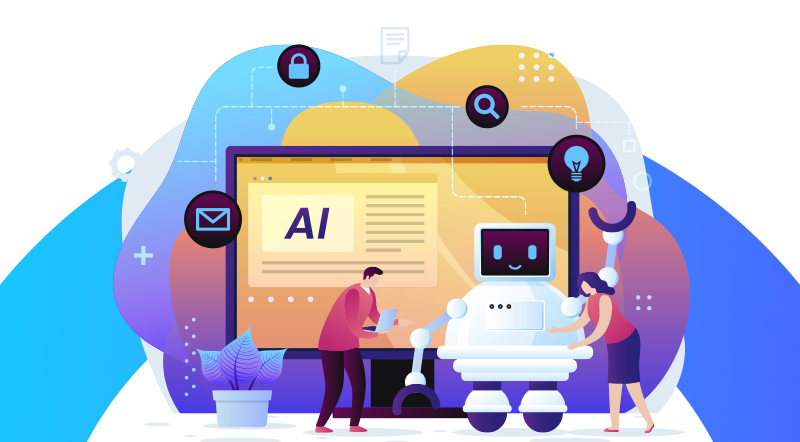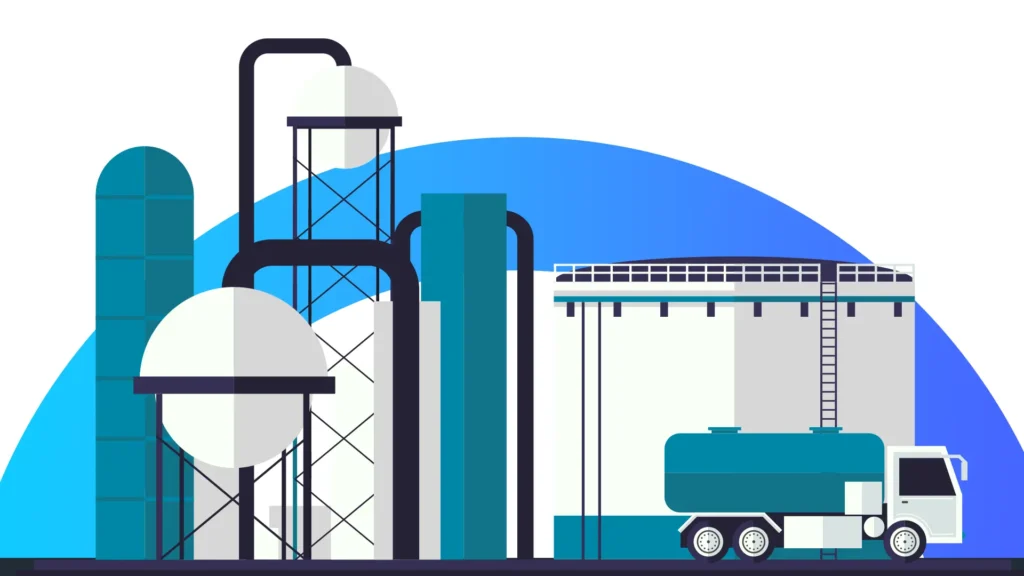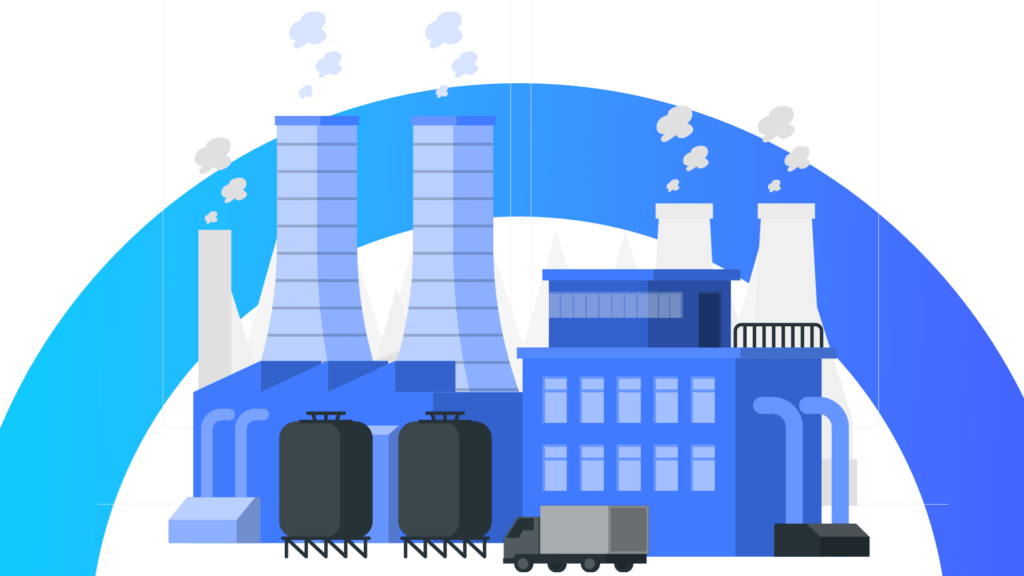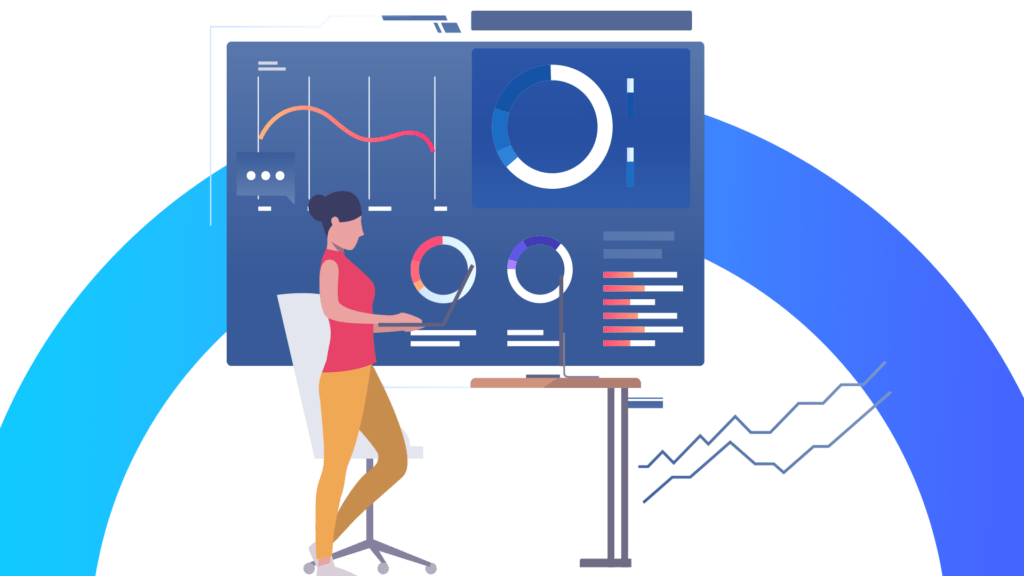As 2024 looms on the horizon, the integration of AI is becoming ever more critical for industrial enterprises to progress. AI integration in manufacturing is accelerating rapidly, poised for a pivotal year, shaping the future of the production industry. This article delves into AI’s impact on manufacturing, exploring how it enhances operations, and guides the industry towards intelligent production. Let’s discuss the key trends that will be shaping the manufacturing landscape in 2024.
Generative AI
Generative Artificial Intelligence refers to a class of artificial intelligence systems designed to generate content, data, or other outputs autonomously. Gen AI learns from data to create content, unlike traditional systems reliant on explicit programming and rules for operation. Gartner, in one of its researches, claims that by 2026, more than 80% of industries would have incorporated AI-enabled applications to their operations. Let’s discover why the utilization of AI has become indispensable.
Root cause analysis and quality control:
When all the OT data is available at a single cloud platform, GenAI utilizes its ability to analyze and comprehend this complex data into actionable insights in a conversational language which will enable manufacturers to initiate changes to the machines by simply asking them to do it.
Moreover, the simulation models will play a crucial role in dissecting the root cause analysis for problems and will aid manufacturers in solving the problem by just asking questions like “Why is this happening?” or “How can we improve the product quality?” manufacturers can use AI-driven simulations to know what might happen after making certain changes, without actually making any changes to the machines. This foresight equips them with informed decision-making and enhances the quality of their products.
Reduced downtime:
The integration of Artificial Intelligence in manufacturing operations serves as a valuable asset in minimizing downtime. AI utilizes the available data to engage in predictive analysis and informs the decision-makers about the potential harm timely. Furthermore, with the help of available data, it also enables manufacturers to find the most efficient ways to troubleshoot and get the equipment back online swiftly. For example, Octopus Digital’s Digital Log is one such tool that digitizes plant operations, helping with process management and efficient use of assets and resources. The prompt notification alerts the equipment operators about any potential failures before they occur, allowing preventive measures ahead of time.
Cobots:
As the striking evolution of AI continues in 2024, one of the most notable features is the improvement in artificial intelligence governing cobots. Collaborative robots, colloquially known as cobots, are meticulously designed to seamlessly integrate into the manufacturing environment, working alongside human counterparts. Their functionality extends beyond mere automation; they become agile and responsive partners, jointly undertaking tasks and responsibilities. Cobots can become more interconnected to cloud computing equipping them to share data and insights in real-time enabling centralized monitoring, remote programming, and the ability to utilize data analytics for performance optimization.
Data security management:
In 2024, AI will not only be implemented to maximize the efficiency of plants but will also help us manage our data. With the increasing reliance on Artificial Intelligence, there comes a pressing demand for robust data security management. Artificial Intelligence applications will be employed to analyze the data identify any potential threats and swiftly detect weaknesses and vulnerabilities in real time, contributing to rapid responses to security challenges.
Efficiency and sustainability:
With the increasing pollution, every industry is striving to induce sustainable practices in their operations for a greener and healthier environment. Artificial Intelligence in 2024 will continue to help in achieving sustainable development, as AI algorithms will not only analyze the energy consumption of the industries but will also help in optimizing it and reducing the carbon footprint. Moreover, predictive maintenance through AI also promotes the efficient usage of resources, contributing to sustainability.
A new era of intelligent and adaptive manufacturing
The integration of Artificial Intelligence in the manufacturing industry is a testament to the sector’s commitment to innovation and efficiency. From predictive maintenance and quality control to data security management and collaborative robots, AI is reshaping the manufacturing process. Manufacturers can anticipate heightened competitiveness, boosted productivity, and enhanced responsiveness to modern market challenges amid evolving trends. Industry 4.0’s journey advances with AI leading, heralding intelligent manufacturing’s new era in 2024 and beyond. Thinking about exploring the world of Artificial Intelligence? Talk to us for more information on how you can take transformative steps for your organization.




